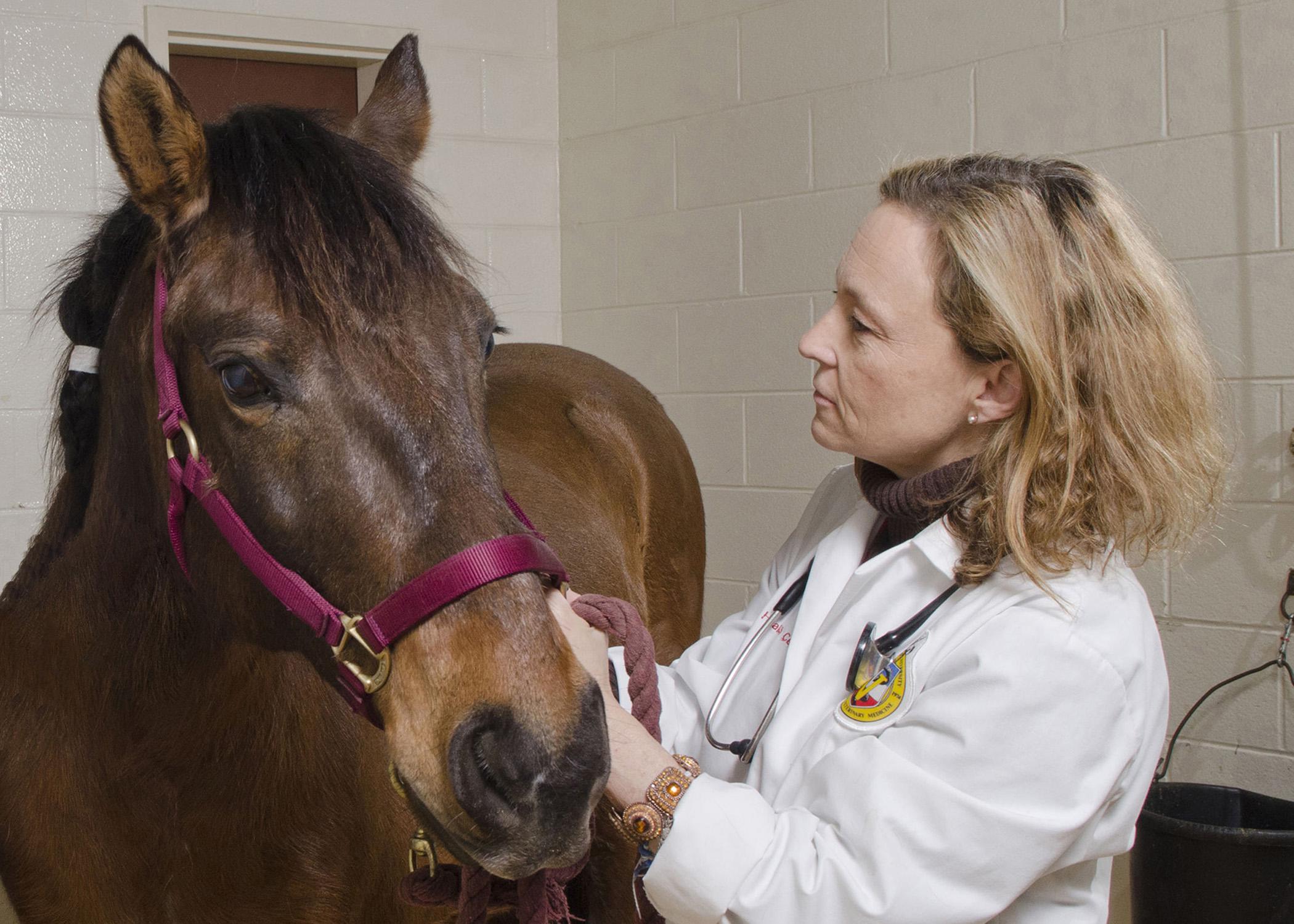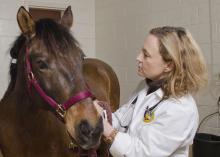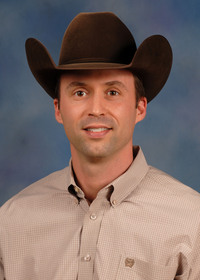Information Possibly Outdated
The information presented on this page was originally released on January 10, 2013. It may not be outdated, but please search our site for more current information. If you plan to quote or reference this information in a publication, please check with the Extension specialist or author before proceeding.
Heart's passions will make the best careers
MISSISSIPPI STATE – Even though she did not grow up on a farm, Dr. Cyprianna “Chipper” Swiderski grew up in the Baltimore area with a love for horses.
That love carried her through two graduate degrees, an internship, a residency and nearly 25 years as an equine practitioner. Now, she is a faculty member in the Mississippi State University College of Veterinary Medicine.
“I loved the idea of being a veterinarian, but I also considered engineering. The key to career choices is finding your passion. What will hold your interest when you are exhausted? For me, that answer, ‘horses,’ is rooted in a very special bond I found with them as a child,” she said.
When her parents realized her interest in horses was not a passing fancy, they gave her a pony for Christmas when she was 11. They supported her care for the pony through all the inclement weather the Northeast could offer.
Swiderski attended the University of Maryland and was an early-entry student in Maryland and Virginia Tech’s regional veterinary college. She earned her Doctor of Veterinary Medicine degree from Virginia-Maryland Regional College of Veterinary Medicine. After a year in an equine practice, she completed an internship at North Carolina State University. Next, she entered an equine medicine residency program and then earned a Ph.D. from Louisiana State University in 1998.
“A bond with the horse provides a powerful motivation. The reasons I enjoy equine practice are the reasons others might not. The working conditions can be extreme, and the work can be very tiring at times,” she said. “You don’t have to have grown up around horses, but you do have to be committed.”
After leaving LSU, Swiderski headed the virology section at the Arkansas Livestock and Poultry Commission Laboratory. She also co-owned and practiced in a private, large-animal practice in Mississippi for nine years and later served as a farm veterinarian at a cutting horse breeding and training facility in Texas. In 2004, she came to MSU with a desire to help grow the college’s equine program and its internship and residency programs.
“The program grew, providing opportunities to expand our equine research effort. The equine faculty and house officers have worked together to achieve national and international recognition for MSU as a leader in equine medicine and research, and it is tremendously rewarding to see evidence that our work is being recognized outside of the CVM,” said the associate professor of equine medicine.
Another important role she plays at MSU is in refining the skills of the next generation of veterinarians. Through the Animal Health Center, Swiderski helps students learn how to diagnose equine patients and communicate with their owners.
It was one such encounter between Swiderski and a horse owner that changed Keith Youngblood’s career path almost a decade ago. He was 31 years old, participating in team penning and cutting events with his horses, and he had a job teaching machine tools at Meridian Community College.
“I always wanted to be a veterinarian, but then life happened. I had a foal that became ill and was referred to MSU. I was so impressed by the way Dr. Swiderski worked on that foal. I decided on my way home to go to vet school,” he said. “If I had not seen how she conducted herself as an equine veterinarian, I would not be where I am now.”
Youngblood enrolled in MSU’s College of Veterinary Medicine and never looked back.
“Once I was in school, I could count on her to help me with both educational matters and life issues,” he said.
Youngblood graduated in 2010 and attained an equine internship in Weatherford, Texas, his first job as a veterinarian. Youngblood has realized his dream and is now employed in nearby Alvarado, where he mostly works with horses.
Contact: Karen Templeton, (662) 325-1100




